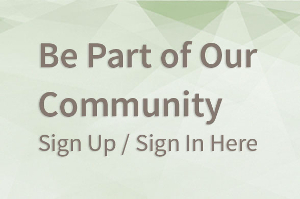BK Blog Post
Medium - The Future Baby of Social Justice, Tech Culture, & Publishing
 Posted by
Shabnam Banerjee-McFarland,
Sales and Marketing Strategist,
Berrett-Koehler Publishers, Inc. .
Posted by
Shabnam Banerjee-McFarland,
Sales and Marketing Strategist,
Berrett-Koehler Publishers, Inc. .
Shabnam is the Sales & Marketing Strategist at BK and coordinates launch campaigns for a few books per season. She is a San Francisco native born & raised, forever wandering the earth like a unicorn.
I’m going to be blunt here and go against the grain – I think tech startup culture is entirely overrated. Very rarely do I hear an elevator pitch espoused by a, for lack of a better term, techie, in which I truly believe their app, website, or whatever, will really propel society forward. My phone and laptop are already bogged down with data-overload. I’m also a big proponent of brand loyalty and supporting companies that have core mission statements. Tech companies, I find, don't accurately capture the needs of their customers and seek to improve their lives with their product or idea.
That is, however, until I started writing on Medium. Medium, for those who are not yet familiar, is an amazing online community for literary folk, bloggers, readers, writers, politicians, marketers, engineers, tech startup CEOs and wanna-bes. It began two years ago as a social media community for writers, in which people could share thoughts, models, artwork, and social commentary and has since evolved into what I believe to be the future of publishing.
The model for this site is unlike anything both print and online publishing have seen since Johannes Gutenberg invented the printing press. The clean and easy-to-use interface allows readers to fully absorb and engage with the content while having access to streamlined social media sharing mechanisms that are unavailable on other blogging platforms, such as WordPress and Blogspot. Over the last 10 years, the blogosphere has become so bloated that filtering through content is a near impossible feat with no end in sight.
Then Medium came along and created a space for active dialogue and engagement with long-form content. Truthfully, in the age of 160 character tweets and Facebook statuses, long-form content seemed to be on the downturn. In a bustling world, no one has time to read a 10-page article, let alone a whole book. But Medium has had an influential hand in getting people to recognize the value of a well-thought, fleshed out argument.
More than that, too, they’ve created avenues for writers to really own their content. A couple weeks ago, I attended an event hosted by Medium during which they announced some really exciting changes they are making within the company, which will directly benefit both writers and readers. Below are some of the groundbreaking concepts they’ve made into realities.
- Users can now sign up independently of having a Twitter or Facebook. Previously, you could only sign up if you were already on Twitter or FB. You can still import followers, but now it’s possible to sign up directly through Medium. Some big names have accounts on there now: the White House & the ACLU for example. In addition, online liberal publications such as Huffington Post and Mic are posting a lot more on Medium as well. Allowing people to import followers give up & coming writers a bigger platform to share their work, but if an established author doesn’t want to import followers, they don’t have to.
- Domain names – you can now use your own domain but with the Medium interface, which is quite pristine and easy to read, I might add. The way it was explained to me is similar to WordPress, but the beauty of Medium is that it operates as a social media platform so the sharing mechanisms are much more efficient.
- Online content ownership – this has more to do with the IOS engineering, which is kind of outside my realm of expert knowledge, but from what I gather, they’ve engineered ways for authors to tag their work so that it’s not proliferated online without their consent, or moreover, their ownership. The IOS engineer that I spoke with seemed really excited about the opportunity for authors to really own their content online, as many burgeoning writers are often extorted by major online publications through plagiarism, click-bait, not getting paid, etc. They have also made it very easy for authors to direct readers back to their own personal websites through Medium.
- They are all about social justice. A huge portion of the content featured on Medium is about social, economic and environmental justice. In addition, a majority of the writers who write about about entrepreneurial tech work provide tips and tricks, as well as how to run conscious business in a sometimes-vicious tech culture. They have a very organic outreach program in place that has recruited professors, the ACLU and a number of nonprofit groups to post on the forum.
Medium brings together a wide array of audiences, but the primary audience of this platform is Millennials. However, we know that the Millennial experience is remarkably diverse, which invites older, established thought-leaders to make their claims on here – Margaret Atwood being one of them, with her compelling article on our very real and imminent dystopian future and climate change.
Medium is our best chance at having a meaningful dialogue on social media, and removes much of the anxiety of being confrontational and hasty that social media regularly cultivates. High quality content is the standard here, and they've given writers a platform to not only be proud of the work they produce, but also instantaneously share it with an intellectual community that values their effort. As a writer, I'm thankful for my Medium account - I truly think it lead to me landing a job in book publishing!





